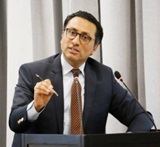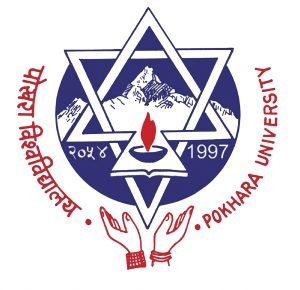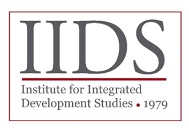International Conference on Sustainable Development (ICSD 2023)

`
- Home
- About Us
- Conference Committees
- Conference Flyer
- Call for Papers
- Author Guidelines and Abstract/Paper Submission
- Registration
- Visa
- Venue
- Contact
Introduction
An economically, socially and environmentally sustainable future can only be envisioned and achieved through clear vision, comprehensive preparation and concerted actions. Freeing humanity from poverty and hunger; generating inclusive, equitable and green economic growth; creating greater opportunities for all; reducing inequalities; raising basic standards of living; fostering equitable social development and inclusion; and promoting integrated and sustainable management of natural resources and ecosystems are still the critical challenges to sustainable development for emerging economies. Tangible supports to economic, social and human development while facilitating environmental conservation, regeneration and restoration and resilience are the new and emerging challenges for emerging economies.
The United Nations after the partial achievement of the Millennium Development Goals (MDGs) has set 17 Sustainable Development Goals (SDGs) which in general constitute sustainable development in any country, particularly in developing and emerging countries. Implementing the UN Sustainable Development Goals requires different actions depending on a country's economic, social and environmental context. This especially applies to countries with emerging economies.
Despite the efforts of the international community, national Governments, the private sector and other development partners, sustainable development goals have faced great challenges to achieve because of their complex interlinkage with economic development, social transformation and environmental protection. Now the world is committed to achieving sustainable development as a matter of urgency. Challenges for sustainable development are becoming even more serious and complex because, despite various efforts, our consumption and production systems are not becoming sustainable in the real sense. Neither are we fully and seriously prepared for sustainable-oriented modernity, risk-free production and consumption system, nor for life or community beyond material affluence. This situation is further aggravating the challenges of environmental sustainability, that is, ‘the harmony with nature.’ Thus, SDGs are the critical points of negotiation among our planet's social, economic and environmental subsystems.
However, achieving these SDGs is not an easy task. They require substantial public expenditure which seems far beyond the affordability of most developing and emerging countries. Many of the SDGs and the overall goals of mainstream development have strong inter-linkage. Appropriate assessment and management of such inter-linkage may reduce the need for development financing. Search for synergies among the critical SDGs may help to achieve the overall SDGs through the shortest path with the principle of least cost within the shortest time possible.
Considering the above-mentioned context, the objective of this conference is to provide an opportunity for a vibrant discussion among academics, policymakers, professionals and practitioners on developmental strategies most effective for countries with emerging economies. We hope that these discussions will lead to the guidelines articulating more pragmatic measures that could be forwarded to the Governments and other partners working for sustainable development for emerging economies. The conference sessions will have mainstream sustainable development themes, especially those that create the biggest challenge for emerging economies.
Keynote Speakers
Dr Swarnim Wagle
 Dr Swarnim Wagle is the Chair of the Institute for Integrated Development Studies (IIDS), a South Asian policy think-tank organization established in Kathmandu in 1979. He is the former Chief Economic Advisor at the UNDP Regional Bureau for Asia and the Pacific (RBAP) in New York covering 36 countries.
Dr Swarnim Wagle is the Chair of the Institute for Integrated Development Studies (IIDS), a South Asian policy think-tank organization established in Kathmandu in 1979. He is the former Chief Economic Advisor at the UNDP Regional Bureau for Asia and the Pacific (RBAP) in New York covering 36 countries.
Between 2014 and 2018, he served the National Planning Commission (NPC) of Nepal for three intermittent years, first as Member and then as Vice-Chair, and guided the formulation of national development strategies, coordinated policy across the public sector, monitored large projects, led ministerial delegations on the international stage, and steered organizational change.
Dr Wagle has worked as an international development professional for more than 20 years, including as Senior Economist at The World Bank in Washington, DC and UNDP in New York, Hanoi and Colombo.
Dr Rubana Huq
 Dr Rubana Huq is a businesswoman, a poet, and currently the Vice Chancellor of Asian University for Women. She is the immediate past President of the Bangladesh Garment Manufacturers and Exporters Association (BGMEA), and she was also the first female occupant of the post. She was featured in BBC’s 100 Women in 2013 and 2014. She won the SAARC Literary Award for her poems in 2006. Her first book of poems is titled Time of My Life.
Dr Rubana Huq is a businesswoman, a poet, and currently the Vice Chancellor of Asian University for Women. She is the immediate past President of the Bangladesh Garment Manufacturers and Exporters Association (BGMEA), and she was also the first female occupant of the post. She was featured in BBC’s 100 Women in 2013 and 2014. She won the SAARC Literary Award for her poems in 2006. Her first book of poems is titled Time of My Life.
Dr Huq is the former CEO of TV Southasia, a collaborative platform of South Asian electronic media based in Kolkata. She has been elected to represent the global manufacturers in the United Nations Framework Convention on Climate Change (UNFCCC) for Climate Action for the period of 2021-22 to the Steering Committee of UN Fashion Charter. She is currently a visiting fellow at Stern School of Business at New York University and the Asia Center at Harvard University.
The modality and expected outcomes of the conference
Members of academia, policymakers, planners and professionals, policy implementing actors, evaluators, and practitioners are invited to submit theoretical papers, research papers, practical papers as well as posters. Authors will present their papers physically or virtually during the sessions. Plenary sessions and panel discussions will be organized to highlight the thematic areas of the conference.
The outcome of the conference will have two products: (i) a book of abstracts/conference proceedings, and (ii) publication of research papers in the Journal of Development and Social Engineering (ISSN: 2382-5332. JDSE is an interdisciplinary peer-reviewed journal published by the School of Development and Social Engineering, Faculty of Humanities and Social Sciences, Pokhara University, indexed on NepJOL (https://www.nepjol.info/index.php/index).
Faculty of Humanities and Social Sciences, Pokhara University
 The Faculty of Humanities and Social Sciences (FHSS) is one of the four faculties of Pokhara University. The faculty is dedicated to excellence in teaching, learning and research in the field of humanities and social sciences with a focus on sustainable development and social engineering. FHSS aims to produce world-class academicians, policy analysts, development professionals, and social engineers equipped with scientific knowledge, intellectual insight, technical expertise, and practical skill, as well as multidisciplinary distinction and interdisciplinary comprehensiveness required to meet the needs of the 21st century. It provides learning opportunities in the contemporary and frontier fields of social sciences fostering critical thinking, creative expression, innovation, and intellectual curiosity by developing innovative curriculums, increasing and strengthening research activities, organizing national/international symposiums, seminars, and conferences, publishing refereed journals along with providing technical, professional and consultancy services to government and non-government organizations within the nation and around the globe.
The Faculty of Humanities and Social Sciences (FHSS) is one of the four faculties of Pokhara University. The faculty is dedicated to excellence in teaching, learning and research in the field of humanities and social sciences with a focus on sustainable development and social engineering. FHSS aims to produce world-class academicians, policy analysts, development professionals, and social engineers equipped with scientific knowledge, intellectual insight, technical expertise, and practical skill, as well as multidisciplinary distinction and interdisciplinary comprehensiveness required to meet the needs of the 21st century. It provides learning opportunities in the contemporary and frontier fields of social sciences fostering critical thinking, creative expression, innovation, and intellectual curiosity by developing innovative curriculums, increasing and strengthening research activities, organizing national/international symposiums, seminars, and conferences, publishing refereed journals along with providing technical, professional and consultancy services to government and non-government organizations within the nation and around the globe.
| Programs Offered by FHSS | |
| Doctor of Philosophy (PhD) · Doctor of Philosophy in Humanities and Social Science (Research Only track) · Doctor of Philosophy in Development Studies (Coursework-Research Track) |
MPhil Level · Master of Philosophy in English (MPhil in English) |
| Master Level · Master of Arts in English (MA in English) · Master in Population, Gender and Development (MPGD) · Master of Development Studies (MDEVS) |
Bachelor Level · Bachelor of Development Studies (BDEVS) · Bachelor of English and Communication Studies (BECS) · Bachelor of Entrepreneurship Development (BED) · Bachelor of Arts Bachelor of Laws (BALLB) |
University Grant Commission (UGC) Nepal
 The University Grants Commission (UGC) was established as an autonomous and statuary institution, under the University Grants Commission Act (1993), to promote, facilitate, support, and enhance the quality of higher education in the country, thereby enabling educational institutions to meet the national need for the educated workforce; it also aims at developing Nepali academia as per the global standard. As one of the outcomes of the political changes in the early 1990s, the UGC was instituted to address the people’s aspirations for revolutionary and qualitative changes in higher education to facilitate the all-round development of the nation. This statuary and the autonomous institution also came into existence to solve the problems that had been historically impairing higher education in the county. The University Grants Commission (UGC) was established to promote quality higher education in every section of society and to develop the culture of research in the country.
The University Grants Commission (UGC) was established as an autonomous and statuary institution, under the University Grants Commission Act (1993), to promote, facilitate, support, and enhance the quality of higher education in the country, thereby enabling educational institutions to meet the national need for the educated workforce; it also aims at developing Nepali academia as per the global standard. As one of the outcomes of the political changes in the early 1990s, the UGC was instituted to address the people’s aspirations for revolutionary and qualitative changes in higher education to facilitate the all-round development of the nation. This statuary and the autonomous institution also came into existence to solve the problems that had been historically impairing higher education in the county. The University Grants Commission (UGC) was established to promote quality higher education in every section of society and to develop the culture of research in the country.
Institute for Integrated Development Studies (IIDS)
 The Institute for Integrated Development Studies (IIDS) is an independent, non-partisan, and not-for-profit think-tank headquartered in Kathmandu, Nepal. Since its inception in 1979, it has proven its commitment to research and policy advocacy based on evidence and a holistic approach to sustainable development. IIDS is overseen by a Governing Council comprising former ministers, policymakers, administrators, and scholars. IIDS has more than 12 distinguished, senior, and adjunct fellows. It also has a pool of over one hundred consultants.
The Institute for Integrated Development Studies (IIDS) is an independent, non-partisan, and not-for-profit think-tank headquartered in Kathmandu, Nepal. Since its inception in 1979, it has proven its commitment to research and policy advocacy based on evidence and a holistic approach to sustainable development. IIDS is overseen by a Governing Council comprising former ministers, policymakers, administrators, and scholars. IIDS has more than 12 distinguished, senior, and adjunct fellows. It also has a pool of over one hundred consultants.
IIDS currently houses the Secretariat of the South Asia Network of Economic Research Institutes (SANEI) with 59 member institutions. It is a member of the Eastern Regional Organization for Public Administration (EROPA) and the South Asian Centre for Policy Studies (SACEPS). IIDS has also hosted international offices in the past, such as the International Food Policy Research Institute (IFPRI).
Over the past 40 years, the impact of IIDS has been extensive through dozens of projects and hundreds of knowledge products shared across society to influence reasoned policymaking and make development effective. Its studies and surveys have spanned macroeconomics, public finance, education, agriculture and rural development, food and nutrition, population and health, trade, energy, regional cooperation, women and development, poverty alleviation, conflict resolution and sustainable peace.
IIDS works with the Government of Nepal, international organizations like the United Nations, World Bank and the Asian Development Bank, and a large number of bilateral development partners as well as think tanks and NGOs.
School of Development and Social Engineering (SDSE)
 The School of Development and Social Engineering (SDSE) was established as a constituent school under the Faculty of Humanities and Social Sciences of Pokhara University in 2009. The vision of the School is to be developed as a Centre of Excellence by leading the contemporary academia in the higher education of development and social engineering thereby producing capable human resources with dynamic leadership. The mission of the School is to advance, promote and propel social, economic, and environmental development through teaching, research, innovation, and intellectual leadership in the field of development and social engineering.
The School of Development and Social Engineering (SDSE) was established as a constituent school under the Faculty of Humanities and Social Sciences of Pokhara University in 2009. The vision of the School is to be developed as a Centre of Excellence by leading the contemporary academia in the higher education of development and social engineering thereby producing capable human resources with dynamic leadership. The mission of the School is to advance, promote and propel social, economic, and environmental development through teaching, research, innovation, and intellectual leadership in the field of development and social engineering.
| Programs Offered at SDSE | |
| Master Level · Master in Population, Gender and Development (MPGD) · Master of Development Studies (MDEVS) |
Bachelor of Level · Bachelor of Development Studies (BDEVS) · Bachelor of English and Communication Studies (BECS) · Bachelor of Entrepreneurship Development (BED) · Bachelor of Arts Bachelor of Laws (BALLB) |
CONFERENCE COMMITTEES
Advisory committee
Prof Dr Prem Narayan Aryal, Vice Chancellor, Pokhara University
Prof Dr Dipak Bahadur Bhandari, Registrar, Pokhara University
Prof Dr Binayak Bhadra, Former Member of the National Planning Commission, Nepal
Organizing committee
Conference Chair : Assoc Prof Dr Ajay Thapa, Dean, FHSS, Pokhara University
Member : Dr Bishwas Gauchan, Executive Director, IIDS, Kathmandu
Member : Assoc Prof Dr Ram Prasad Aryal, SDSE, Pokhara University
Member : Asst Prof Dr Arjun Kumar Thapa, SDSE, Pokhara University
Member : Asst Prof Dr Badri Aryal, SDSE, Pokhara University
Member : Asst Prof Anita Dahal, SDSE, Pokhara University
Member Secretary : Assoc Prof Dr Ananta Raj Dhungana, SDSE, Pokhara University
Scientific and publication committee
Coordinator : Prof Dr Indra Prasad Tiwari, Pokhara University, Nepal
Member : Prof Dr Chandra Bhadra, Pokhara University, Nepal
Member : Prof Dr Bishwo Kalyan Parajuli, Tribhuvan University, Nepal
Member : Prof Dr Lekhnath Bhattarai, Tribhuvan University, Nepal
Member : Prof Dr Vikash Kumar K.C., Tribhuvan University, Nepal
Member : Assoc Prof Dr Min Bahadur Pun, Tribhuvan University, Nepal
Member : Assoc Prof Dr Ram Prasad Aryal, Pokhara University, Nepal
Member : Assoc Prof Dr Rishikesh Pandey, Pokhara University, Nepal
Member : Assoc Prof Dr Damodar Jena, KIIT, India
Member : Dr Sucheta Pyakural, IIDS, Kathmandu, Nepal
Member : Dr Arun Joshi, IIDS, Kathmandu, Nepal
Member : Dr Thi Phuoc Lai Nguyen, Asian Institute of Technology (AIT), Thailand
Member : Dr Pornphan Hemaphan, Kasetsart University, Thailand
Member : Dr Pavithra Madhuwanthi, University of Sri Jayewardenepura, Sri Lanka
Member : Dr B.B. Bingab, University of Education, Winneba, Ghana
Member : Dr Dhurba Vijaya GC, Institute of Forestry, Tribhuvan University, Nepal
Member : Dr Badri Aryal, Pokhara University, Nepal
CALL FOR PAPERS
Faculty of Humanities and Social Sciences, Pokhara University is pleased to announce a call for papers for the International Conference on Sustainable Development to be held on 23-24 June 2023 in Pokhara, Nepal. The conference provides an international platform for presentations on topics related to various issues of sustainable development.
Major themes of the conference
| Conceptual and theoretical analyses of SDGs | Governance, peace and justice |
| Poverty, inequality, and vulnerability | Climate change and natural resources |
| Education, employment and livelihood development | Development partnership |
| Energy, industry and economic growth | Alternative development models |
Scholars from around the globe can join this conference as a presenter or an audience. Author(s) should submit abstracts, full-length papers, and PowerPoint presentations for face-to-face or virtual presentations (See author guidelines: https://pu.edu.np/icsd2023/author-guidelines/ ).
All submissions will be reviewed and evaluated by the scientific committee based on novelty, methodological rigorousness, and relevance to the conference theme and sub-themes. All submissions should be original and unpublished research results.
| Important Dates | ||
| Deadlines | ||
| Abstract submission (200-300 words) | 20 May 2023 | |
| Full-length paper submission (3000 -5000 words) | 05 June 2023 | |
| PowerPoint presentation (.ppt or .pptx) submission | 15 June 2023 | |
For registration and submission of the abstract, full-length paper, & presentation: www.pu.edu.np/icsd2023/registration
Selected papers will have the opportunity to get published in the upcoming volume of the Journal of Development and Social Engineering (JDSE) (ISSN: 2382-5332). JDSE is an interdisciplinary peer-reviewed journal published by the School of Development and Social Engineering, Faculty of Humanities and Social Sciences, Pokhara University, indexed on NepJOL (https://www.nepjol.info/index.php/index).
AUTHOR GUIDELINES AND ABSTRACT/PAPER SUBMISSION
Guidelines for the Submission of Abstract
- The authors may submit abstracts of conceptual, theoretical, original research, and case studies to present at the conference.
- An abstract must be written in English.
- Previously published and presented abstracts will not be accepted.
- An abstract must be short (200 to 300 words, Times New Roman, 12pt Font, Normal), and a specific title containing no abbreviations (Times New Roman, 12pt Font, Bold, Title Case).
- Author names should be written followed by the author’s affiliation and email address (Times New Roman, 12pt Font, Normal).
- Abstracts must be organized into four sections, identified by the following headers (Times New Roman 12pt Font, Single space):
- Purpose
- Methodology
- Key findings
- Conclusions
- Four keywords
- The scientific and publication committee reserves the right to edit abstracts, if necessary, for clarity, typographical errors correction, grammar, style and length.
- Deadline for abstract submission: 20 May 2023
- All abstracts (.doc or .docx format) should be submitted through the Online Submission portal. We do not accept PDF submissions.
- All the accepted abstracts will be published in the abstract book/conference proceeding.
Guidelines for the Submission of Full-Length Paper
- After your abstract is selected, we accept the full paper of high-quality, original and unpublished results of research in the areas of sustainable development. All paper submissions should meet the following requirements:
- All papers must be written in English and must follow the APA 7th edition formatting style.
- The papers should be at least 3000 words and should not exceed 5000 words including tables, figures and charts
- Keywords: Four
- The authors should use 12-point Times New Roman font with single space.
- All papers should pass through a double-blind peer review process and are expected to meet the scientific criteria of novelty, methodological rigorousness and academic excellence.
- Papers submitted to the conference should be original and unpublished.
- If the paper is co-authored, it is the responsibility of the corresponding author to ensure the co-author(s)’ consent to submit for publication.
- All papers should have the following components:
- Title of the paper
- Author’s full name, affiliation/address, and email address
- Abstract (200-300 words)
- Introduction (context, problem statement, objectives)
- Methodology
- Results and Discussions
- Conclusion
- Recommendations (where appropriate)
- Acknowledgements (where appropriate)
- References (APA 7 Edition)
- All papers should be submitted through the Online Submission portal.
- The concerned author(s) will be responsible for all views and data presented in the papers.
- Selected papers after going through the further peer-review process will have the opportunity to get published in the upcoming volume of the Journal of Development and Social Engineering (JDSE) (ISSN: 2382-5332). JDSE is an interdisciplinary peer-reviewed journal published by the School of Development and Social Engineering, Faculty of Humanities and Social Sciences, Pokhara University. JDSE journal is indexed on NepJOL (https://www.nepjol.info/index.php/index).
Presentation Guidelines
- Author(s) should confirm the mode of presentation: Face-to-Face Presentation or Virtual Presentation.
- The length of the presentation, both Face-to-Face and Virtual, is 15 minutes.
- Author(s) should submit their presentation (.ppt or .pptx) for both face-to-face and virtual presentations at the conference.
- All presenters should make sure that you need to be present at the conference venue at least 30 minutes prior to their scheduled time for the
- If you cannot attend the conference in person, you may opt for a virtual presentation.
REGISTRATION PROCESS
Interested participants may register online.
Registration fee
| Categories | Nepal (NRs) | Foreign (US$) |
| University students | 3000 | 100 |
| Paper presenter/author | 5000 | 150 |
| Individual audience | 3000 | 100 |
The university students should provide a confirmation letter of their student status signed by the head of the institute or department. The conference registration fee includes the following:
- Participating in all plenary and parallel sessions
- Conference kits
- Breakfast, lunch and hi-tea during the conference
- City tour
The foreign scholars who will present their papers will be provided with free domestic transportation (two-way Kathmandu-Pokhara) and free accommodation during the conference. In case of non-attendance, the registration fee will not be refunded.
Registration fee payment
Account Name : Faculty of humanities and soc
Account Number : 06001017500360
Bank Name : Nabil Bank Ltd
Bank Address : Pokhara, Nepal
SWIFT : NARBNPKA
VISA APPLICATION
It is the responsibility of the participant to inquire about the visa requirements to enter Nepal and apply for a conference visa, if necessary. The conference organizer will provide an Invitation Letter to all national and international participants after their registration process is completed for participation in the conference. The invitation letter to participate in the conference will help facilitate your visa process. Foreign participants who are required to apply for a visa need to act early.
Pokhara, Nepal
CONTACT US
If you have any queries or need any assistance with submissions, registration, or any other support related to the conference, you may contact the following address.
Contact Address:
Organizing Committee/Conference Secretariate
International Conference on Sustainable Development
Pokhara, Kaski, Nepal
URL: www.pu.edu.np/academics/faculties/fhss
Email: [email protected]
Cell Phone: +977-9856028917



